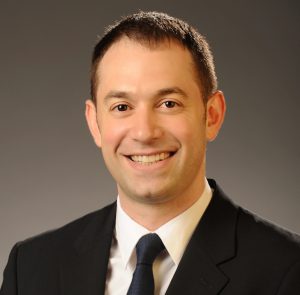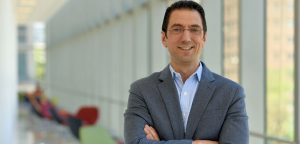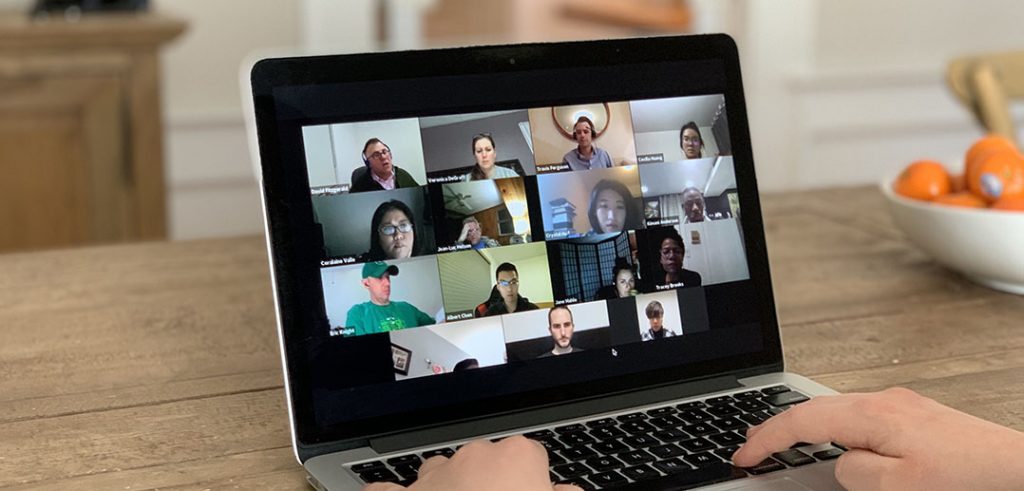Fordham Law’s online Master of Studies in Law (M.S.L.) in Corporate Compliance—currently midway through its inaugural year—has received an overwhelmingly positive response from students. The program, which earns students 30 credits and can be completed in as few as 12 months, is designed specifically for non-lawyers who are interested in advancing their careers by learning about corporate compliance from a legal perspective. Currently, there are 61 enrolled students from a wide array of industries and professional levels. They hail from the New York Metropolitan area, around the country, and across the globe.
Fordham was the first law school in the country to offer a master’s degree in corporate compliance when it launched the on-campus M.S.L. program in 2016. The online M.S.L. became a reality in fall 2019 after Fordham had heard from many prospective students who were interested in the program but could not fit the on-campus classes into their busy work schedules. The online format offers students a curriculum and learning experience that are similar to those provided in the on-campus M.S.L. program.
Unlike other online programs, Fordham Law’s online M.S.L. features both “asynchronous” and “synchronous” components. Students watch pre-recorded lectures with slide presentations and answer a set of follow-up questions on their own time (the asynchronous component). They also log in during a specific day and time each week to participate in a live, virtual classroom (the synchronous component).

Professor Joseph Landau says he particularly enjoys the live classes with students in his “U.S. Law and Legal Institutions” class. “Those sessions are a lot of fun and I think they nicely build off what we’re covering each week in the recorded sessions,” he said. “It’s wonderful to interact with these incredibly interesting and very accomplished students. I’m really glad to be a part of it.”
Erica Susko, a commercial banking regulatory compliance consultant at Wells Fargo, will be graduating from the online program in December 2020. She said there weren’t options to pursue a career in compliance when she graduated from college 20 years ago. Susko came across an advertisement for Fordham Law’s online M.S.L. program in Grand Central Station during her commute. At the time, she was actively looking for a new position in Wells Fargo to grow in her career and was attracted to the opportunity to study at Fordham.
“I live in New Jersey and the idea of having to stay late nights and go to class was a commitment I couldn’t make,” Susko said. “This was exactly what I needed to fit into my schedule.” The asynchronous content is broken down into short modules, making it easier to complete in between tasks. “I can plan out my week to do the asynchronous courses when I have time—whether it’s after work, on a lunch break, or doing some reading on the bus,” Susko said. “I really do think that it was very well designed for full-time working individuals who have a life and have career goals.”
Fellow classmate Jorge Cortes works in a compliance role at Jefferies & Company and has worked in financial services for more than two decades. “For a few years I had been looking for some type of a certificate or degree related to compliance to help with my career trajectory and longevity, but there wasn’t really anything specific to compliance,” Cortes explained. “Overall I’m very happy so far. The professors have been great, and there’s a lot of good conversation when talking about the different topics during the classes’ live sessions.”

According to Robert Mascola, senior director of compliance programs at Fordham Law, the combination of the two delivery formats gives students the best of both worlds. “It allows students to complete their coursework at their own pace, wherever they are based. And it also offers the benefits of having a virtual classroom.” The latter, Mascola said, takes advantage of new technologies that allow professors and students to engage in lively discussions, just as they would in an on-campus classroom. “When people think ‘online,’ they might think of programs that are entirely based on recorded videos and discussion boards,” he said. “Our program has that, but it also gives students the benefit of having real-time conversations with faculty and other students in an engaging classroom environment.”
The program’s curriculum, which challenges students in critical thinking and application, also provides them the tools to analyze compliance risks, design measures to address those risks, and build effective ethics and compliance programs. Adjunct Professor David Fitzgerald ’98, who taught Global Corporate Compliance on campus in the spring and fall of 2018, designed and translated his in-person class to an online format. “It’s a great tool, and it’s good for compliance professionals to get a more academic, connected view of what the profession requires,” Fitzgerald said.
Cortes explained that conflicts of interest, in particular, are something that he deals with on a daily basis in his profession. “The work that we’re doing in the M.S.L. program has helped me get a better understanding of conflicts, to work through them and to resolve them,” he said. “The topics that we’ve covered, and the things that we’re discussing are all relevant to what I’m seeing in real life.”
Another program perk for students is attending an in-person, three-day colloquium at the Lincoln Center campus in August in the last year of study. The colloquium provides students the opportunity to meet their professors in person, network with leading compliance experts, and collaborate with colleagues to work through real-world compliance challenges. In their final semester, students also complete a capstone course during which they apply what they have learned in an independent, in-depth paper on a compliance topic of their choosing.
“The fact that we’re in New York City gives us access to top-notch compliance professionals who teach classes and participate in speaker programs, and our students truly benefit from that,” Mascola said. “Additionally, we’re constantly improving the technology and enhancing our curriculum. For example, we’re excited to be adding new courses to our program, including one on privacy and cybersecurity that is scheduled to be launched in January 2021.”


